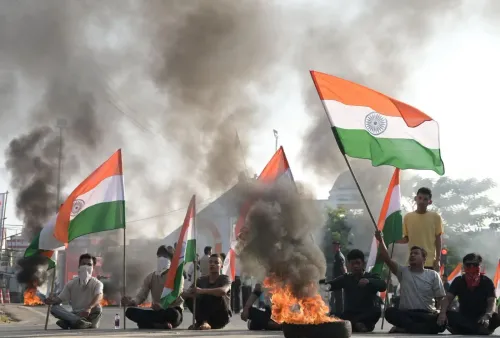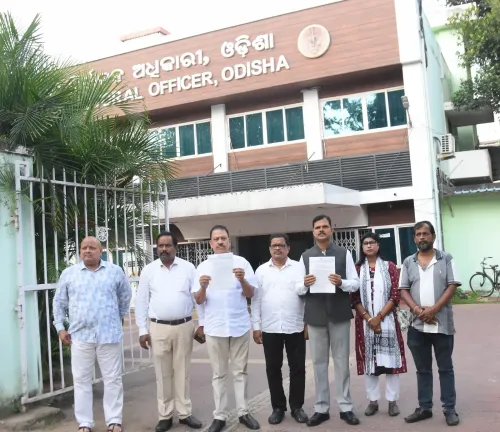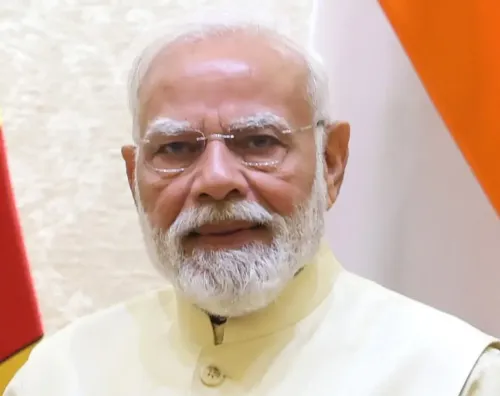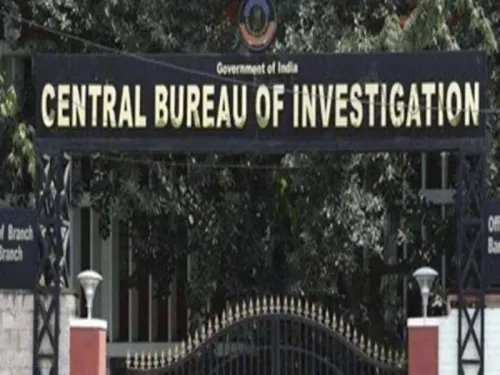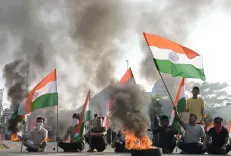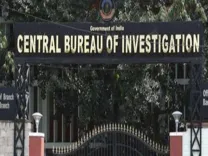Is Bangladesh's New Leadership Creating a TTP-Like Challenge for Pakistan?

Synopsis
Key Takeaways
- Bangladesh's political landscape is shifting under Muhammad Yunus.
- The Hizb-ut-Tahrir is growing increasingly critical of Pakistan.
- Radical groups are establishing a foothold in Bangladesh.
- Pakistan's foreign policy is impacting regional dynamics.
- Tensions between the Taliban and Pakistan remain high.
New Delhi, Oct 23 (NationPress) Bangladesh is currently facing significant turmoil under the leadership of Jamaat-e-Islami supported Muhammad Yunus, especially due to the influence of radical Islamic factions. Following Yunus's ascent, the nation's foreign policy has increasingly aligned with Pakistan, raising concerns in India.
With unrestricted access to Bangladesh, the ISI has established terror training camps, where numerous radicalized youths are being indoctrinated. Although many terror factions in Bangladesh follow the directives of the ISI, one particular group has become a source of contention.
The Hizb-ut-Tahrir (HuT), a radical Islamic organization, is at odds with Pakistan. The stance taken by Islamabad regarding Israel and its approach towards the Taliban has displeased the HuT.
According to Intelligence Bureau officials, the HuT has refrained from participating in any ISI-led initiatives in Bangladesh, choosing instead to remain independent and focused on establishing a Caliphate.
Under Yunus's administration, the HuT has experienced a tumultuous relationship. After the ousting of Sheikh Hasina and the rise of Yunus, the HuT became more active, even hosting a seminar discussing India's influence in Bangladesh.
They expressed their views on the necessity of creating a Caliphate but grew increasingly frustrated with Pakistan's attempts to exert control over Bangladesh.
Many in the HuT have started to perceive Pakistan as more of a Western-influenced entity rather than a true advocate for their cause. This sentiment intensified following Israel's retaliatory actions following the Hamas attack. Recently, Pakistan has largely aligned its position with the United States.
The HuT's criticism is directed towards Pakistan's double standards. On one hand, the ISI has enabled Hamas operatives to collaborate with terrorists from Hizbul Mujahideen, Jaish-e-Mohammad, and Lashkar-e-Taiba. On the other hand, as Israel escalated its offensive against Hamas, Pakistan echoed the United States' narrative, prompting dissatisfaction from the HuT regarding Pakistan's stance on Israel.
Founded in Jerusalem in 1953, the HuT is a pan-Islamist organization dedicated to establishing an Islamic Caliphate. The group made its debut in Bangladesh in 2000, aiming to extend its influence in the region.
Aside from the Israeli-Palestinian conflict, the HuT also disapproves of Pakistan's position on the Afghan Taliban, especially given the rising tensions between the Taliban and Pakistan.
Although fighting has ceased, the ceasefire remains fragile. When Pakistan launched airstrikes against the Taliban, the HuT issued a strong condemnation of these actions, labeling them as audacious and indicative of Pakistan's temporary alignment with the United States.
While the HuT may have celebrated the fall of the Sheikh Hasina government, they quickly recognized that Yunus was merely a puppet of Islamabad.
Under pressure from Pakistan, the Yunus administration has taken stringent measures against the HuT, including the arrest of prominent leader Imtiaz Selim.
Experts suggest that the HuT could pose serious challenges for both the Bangladeshi government and Pakistan moving forward. Officials warn that the HuT may evolve into a new Tehreek-e-Taliban Pakistan (TTP) for the ISI regarding its ambitions in Bangladesh.

